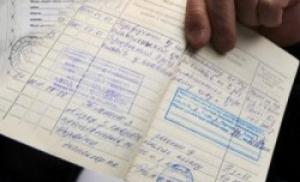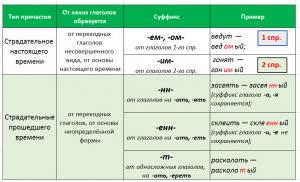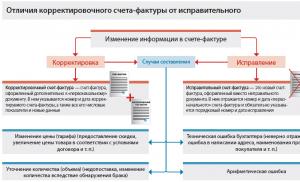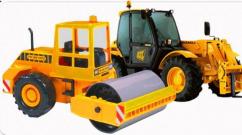Presentation on the topic English dialect. Presentation on the English language on the topic: "Travel language




History Dialect is a type of language that is used as a means of communication between people connected by the same territory. A dialect is a complete system of speech communication (oral or signed, but not necessarily written) with its own vocabulary and grammar.


FEATURES OF SPEECH Sound omission [h]. For example, “not alf” instead of “not half”. Using "aint" instead of "isnt" or "am not". Pronouncing the sound [θ] as [f] (for example, “faasnd” instead of “thousand”) and [ð] as (v) (for example, “bover” instead of “bother”). Transformation into [æ ː ], for example, "down" is pronounced as . Using rhyming slang. For example, “feet” “plates of meat”, instead of “head” “loaf of bread”; sometimes such phrases are shortened to form a new word: “loaf” instead of “loaf of bread”. (“Rarely using his loaf of bread”) Omitting [t] between vowels: bottle = “bol.” Use instead of [r] - [ʋ], which sounds reminiscent of [w]. (“Weally” instead of “really”) Omitting the [t] sound at the end of a word, example: [ʃ ui] instead of [ʃ a ɪ t].


LITERATURE AND CINEMA The famous musical film My Fair Lady, based on Bernard Shaw's play Pygmalion, shows how Professor Higgins teaches a Cockney flower girl, Elizabeth Doolittle, how to speak well in order to be accepted in high society. for yours.


Rhyming slang MeaningExample Adam and Eve BelieveWould you Adam and Eve it? Alligator LaterSee you later alligator. Apples and Pears StairsGet up those apples to bed! Army and Navy GravyPass the army, will you? Bacon and Eggs LegsShe has such long bacons. Barnet Fair HairI"m going to have my barnet cut. Bees and Honey MoneyHand over the bees. Biscuits and Cheese KneesOoh! What knobbly biscuits! Bull and Cow RowWe don"t have to have a bull about it. Butcher"s Hook LookI had a butchers at it through the window. Cobbler"s Awls BallsYou"re talking cobblers! Crust of Bread HeadUse your crust, lad. Daffadown Dilly SillyShe"s a bit daffy. Hampton Wick PrickYou"re getting on my wick! Khyber Pass ArseStick that up your Khyber. Loaf of Bread HeadThink about it; use your loaf. Mince Pies EyesWhat beautiful minces. Oxford Scholar DollarCould you lend me an Oxford? Pen and Ink StinkPooh! It pens a bit in here. Rabbit and Pork TalkI don't know what she's rabbiting about. Raspberry Tart FartI can smell a raspberry. The police are coming! Trouble and Strife Wife"s been shopping again. Uncle Bert ShirtI"m ironing my Uncle. Weasel and Stoat CoatWhere"s my weasel?

CONCLUSION Regional dialects in Britain enjoy enormous popularity and cultural significance and sometimes play an important role. The Cockney dialect, like other dialects, has its own characteristics that you need to know in order to fully understand English speech.

Slide 1
Today English is rightfully considered the most widely spoken language. Indeed, English is spoken today in almost all countries of the world; this language has become mandatory for learning in our country. What, you don’t know English? This is unacceptable in today's business environment. The presentation was prepared by students of grade 8 “B” Teacher S.I. Zaitseva 2010 5klass.net
Slide 2
Hardly anyone knows!
And hardly anyone knows, or can even imagine, that English was once the language of the rabble, even in Great Britain itself. But, nevertheless, it is so. In order to understand why the English language has become so popular, and moreover, in demand, you should plunge into history.
Slide 3
How was the English language formed?
How was the English language formed? Scientists believe that education English language began in the 5th century AD. It was during this period that the tribes of the Angles, Saxons and Jutes moved to the islands that are modern Great Britain. Over time, four independent kingdoms were formed on the islands - Northumbria, Mercia, Kent, Wessex. Moreover, the last kingdom often subjugated the rest. That is why the Wessex dialect formed the basis of the English language.
Slide 4
Language formation!
The formation of the English language continued until 1066. At this time, the Normans came to Great Britain and introduced French. French was spoken at court, French was taught in schools, and French was spoken by high society. And English was the language of the mob. This situation continued until the 14th century, when French was replaced by English. But French managed to leave a significant mark, and today in modern English you can find a lot French words
Slide 5
Dialect of English!
There were many dialects at that time. But the interesting thing is that literary English began to develop from the London dialect, which was the conventional language of the mob and petty criminals. Of course, we are talking about Old English, in which the first English works were written. Their author was John Chaucer.
Slide 6
New English in the 16th century!
In the 16th century, the New English language began to develop. Shakespeare wrote in New English, but a modern Englishman is unlikely to be able to read the original of Shakespeare's sonnets, to such an extent the New English language is not similar to modern English. As for modern English, we study classical, literary English. But if you come to London, you are unlikely to understand the speech of its inhabitants. The thing is that native Londoners speak “Cockney” - a London dialect that differs significantly from classical English. But let's return to the spread of English in the world. It all started with the colonization of America, because America was the largest colony of England. Colonization policies also left their mark in India, where English is still considered a second language today. state language. The British pursued a fairly tough policy regarding the colonies, and tried to subjugate as many countries as possible. The result is that today English is the most popular and widespread language in the world.
Slide 7
At the middle stage!
Initial stage difficult due to the need to master the use of articles, confusing rules of reading and writing, and unusual phonetics. There are no clear rules in English about which syllable to put emphasis on. At the same time, learning to speak English “somehow” is much easier than learning to speak German or French. Simple English grammar “for beginners” allows you to quickly learn how to construct phrases (pay special attention to questions) and navigate simple texts. At the middle stage, many are lost in the face of English verb tenses. This is “facilitated” by textbooks in which the 16 tenses are not considered comprehensively, but separately. Studying each subsequent time, the student forgets the previous one until he is completely confused. However, with the correct study method, the system of English tenses turns out to be very logical and fits into a 4x4 square. Having mastered this “multiplication table”, it is easy to comprehend further sections of English grammar: infinitive, participles, gerund, subjunctive mood...
Slide 8
The most tricky English words!
Every year in the United States, the country's spelling championships among schoolchildren - "Spelling Bee" - are held. Children are asked to indicate all the letters that make up a certain word. The tournament is held until all participants, except one, make at least one mistake in the next word. The prizes are five-digit dollar amounts. These are the words that turn out to be the last - the most tricky - at competitions: gallimaufry, resipiscence, succedaneum, laodicean... Try writing them yourself from dictation!
View all slides
A dialect is a non-standard language that has its own characteristics and, differing from the standard version, is widely used in a certain area. Today we will look at how to learn to distinguish which dialect we are dealing with, and whether it is worth studying each individual dialect in the English language system. In addition, you will have a unique opportunity to find out how multiple dialects differ from each other.
So, traditionally, everyone divides the English language into American and British English, which are significant not only in vocabulary and grammatical structures, but also in the manner of pronunciation of individual words and even expressions. However, with an in-depth analysis on a territorial basis, English dialects are divided into other regional variants, namely:
Directly British;
Irish;
New Zealand;
Scottish;
Welsh;
Australian;
Canadian;
directly American.
When visiting the United Kingdom of Great Britain and Northern Ireland, you will notice how varied it is from north to south and from east to west. Here you can find the following dialects of British English:
Glasgow;
Edingurgh;
Scottish;
Lancashire;
Geordie;
Yorkshire;
Essex;
London;
Cockney;
Estuary;
South-Eastern;
Brummy;
West Country;
Comish;
Welsh;
Scouse;
Irish;
Ulter Scots;
Irish and Scottish Gaelic.
You can hear 17 British accents right now
These are not all the versions that can be found in the UK. If you are going to visit small villages, you will certainly understand what we are talking about. For those planning to travel, it will be useful to know that the varieties of spoken English also differ from each other. Queen Elizabeth II speaks exclusively the Queen's English, i.e. Queen's English or Conservative English. News channels, newspapers and magazines are full of an accepted standard called Received Pronunciation or BBC English. It is impossible to keep young people within the framework of the classics, so the most changing and developing language, which actively absorbs other dialects, is Advanced English.
But you can find out what real Britons are doing with Marcus Butler
Believe me, this will be a real discovery for you!
What do the British say?
I have got many new friends who have similar interests. – I have many new friends who have similar interests.
The expression “have got” is used everywhere and has no other equivalent in the UK. The negative form is constructed according to the following principle:
I have not got = I haven’t got
She has not got = she hasn’t got
The interrogative form is formed by placing “have” at the beginning of the sentence, thus producing the following:
Have you got?
Has she got?
No Briton will allow himself to say the sound “r”, unless it connects two words, but even in this case it will sound smoothly and almost imperceptibly.
If you know how to use, this is exactly the case when everything happens according to the classical principle, exactly as it is written. All sounds are pronounced properly, and if there should be an “a”, then there will be an “a”, for example, in the words “fast”, “past”, “example”. All spellings are British Standard, ending in
Tre (theater);
our(color);
ence (offence);
ise(optimize);
yse (analyse).
Vocabulary also has its own characteristics. If you need the ground floor, remember to say “ground floor”, otherwise you will end up on the second floor. Everyone remembers from school English that homework is called “homework”, but luggage is called “luggage”. In the “store” you will find “maize” corn, oatmeal“porridge” and “biscuit” cookies, and if there is a line waiting for you at the checkout, it will have the proud name “queue”. Walking home along the pavement sidewalk, you will see an old tram passing by, and children playing football. Read more about native British words.
How does Irish English differ from Scottish English?

Scotland is rich not only in its traditions, but also in its languages, of which there are three: standard English, Anglo-Scottish and Gaelic. Largest quantity people speak a mixture of standard English and Scots, and only about 50 thousand people speak Gaelic. The locals themselves note about 6 dialects that can be found throughout Scotland.
The Scottish dialect of English has its own characteristics, the most common are the following:
Pronunciation of a clear “r” sound;
the absence of many diphthongs that are characteristic of classical English (down - dun, town - tun, face - fes, place - ples);
All vowels have the same short length;
Pronunciation of sounds “wh” (who, what, while);
the final “y” is replaced by “e” or “i”;
the passive voice is formed using the verb “got” (it got read, they got told);
abbreviation am not = amn’t;
replacing “won’t” with “ll not” (they’ll not visit that place);
use of verbs of feelings in Continuous (I am wanting, they’re feeling).
Scottish vocabulary is completely different from English, pay attention to the following words:

Yes – yes;
small – wee;
fine – braw;
big – muckle;
poor – poor;
she – scho;
England - Down South;
money - poppy.
This is what real Scots say
The Irish dialect of English is increasingly acquiring independent features. Thus, interdental sounds are absent and are completely replaced by [θ] with [t], and the sound [ð] with [d]. Try to practice saying the following words: there, theater, three, thou, through. The Irish dialect is characterized by “okanye”, as a result of which “i” is replaced by “io”, for example, mice = moice, like = loike, strike = stroike.
The most difficult thing begins when the average resident of Russia, coming to Ireland, understands that there is no English as such there. This is especially true for the manner of pronunciation of “wh”, which is pronounced the opposite of “hw”. Now again a minute of practice: which, where, what, whatever, wherever, whale.
The letter “t” at the beginning of a word is replaced by the sound “ch” (Tuesday), however, this pronunciation can also be heard in America.
The grammatical structures of the Irish dialect can drive any philology student crazy, because everything he studied for 5 years actually turns out to be gobbledygook. It would be correct to say in Present Simple
I says;
I do;
I go.
The Present Perfect is replaced by a construction with “after”, i.e. She has done it = she is after doing it.
Past Simple is characterized by the presence of the verbs “do” and “see” in the third form: She done her homework yesterday.
The Irish can be immediately heard by the characteristic words at the end of the sentence: “now”, “so” and “eh”. But you can feel the real Irish right now
What dialects of Australian English can you find?

Coming to Australia, you will immediately notice the pronounced Broad Austrian, which gives way to the more familiar General Austrian and Cultivated Austrian. The main difference from classical English is the voicing of “t” (in British it is softened, in American it is replaced by “r”, and in Australian it is emphasized, for example “better”). There are also characteristic American sounds pronounced as “j”, “tzh” - “educate” is read as “edzhukate”. Some lexical units are completely impossible to recognize without familiarizing yourself with them in advance, for example:
Sheep – jumpbuck;
New Zealander – Kiwi;
chicken – chook;
sausage – snag;
stupid – noong;
day – avro.
Find out more about Australian slang here
An excellent video that clearly shows the presence of different vocabulary in Aussie English can be viewed below:
Welsh English: Is it English?
The third form of verbs is not used, it is replaced by the second (cool, right?). Double negatives are used freely, as in Russian. The article “an” is not used (something for which each of us received a bold red minus at school, because there cannot be “a elephant”). As in Irish, the ending “s” is found in the verb in the first person singular. Present Simple can be freely replaced by Present Continuous, while the marker words of the simple present tense remain. (I am reading a new magazine every day).
The lexical differences are clearly demonstrated in the picture.

But you can hear the Welsh version of English here
What is American English famous for? Dialects can drive you crazy.
We have already noted above that there is an American dialect and its northern brother, the Canadian dialect. is divided into the following subgroups:
Basic American;
eastern type;
southern type.
This is the most common variation, but do not forget that when moving from state to state, pleasant surprises await you, which you can find out about right now:
Canadian English

This dialect is a mixture of British English in terms of writing and American English in terms of vocabulary and phonetics. Note that the influence of the French language is also of particular importance. The majority of people in Canada speak a language officially called General Canadian. Quite often, Canadians use inserts such as “hm”, “ok”, “eh”, which is constantly a reason for jokes from Americans. By the way, this very “eh” can mean anything, from “hey” and “yes” to “what” and “good”. Another cornerstone is the word “about,” which Canadians pronounce “ebout.” However, many Americans are sure that they are saying a completely different word - “ebut”, but this is not so.
Find 10 differences between Americans and Canadians with Matthew
The voicing of the sound “t” in the position between vowels occurs in the same way as in American English, resulting in homophones, for example, bleating - bleeding. The words “dictionary”, “ordinary”, “obligatory” often have double stress.
You can see and hear real Canadian with Ronnie
And finally. Classics are popular regardless of time and location, so you shouldn’t rush to learn a certain dialect to be understood. You will be understood if you speak.








1 of 8
Presentation on the topic: English is the most popular language
Slide no. 1

Slide description:
Why is English so popular! Today English is rightfully considered the most widely spoken language. Indeed, English is spoken today in almost all countries of the world; this language has become mandatory for learning in our country. What, you don’t know English? This is unacceptable in today's business environment. The presentation was prepared by students of grade 8 “B” Teacher S.I. Zaitseva 2010 5klass.net
Slide no. 2

Slide description:
Hardly anyone knows! And hardly anyone knows, or can even imagine, that English was once the language of the rabble, even in Great Britain itself. But, nevertheless, it is so. In order to understand why the English language has become so popular, and moreover, in demand, you should plunge into history.
Slide no. 3

Slide description:
How was the English language formed? How was the English language formed? Scientists believe that the formation of the English language began in the 5th century AD. It was during this period that the tribes of the Angles, Saxons and Jutes moved to the islands that are modern Great Britain. Over time, four independent kingdoms were formed on the islands - Northumbria, Mercia, Kent, Wessex. Moreover, the last kingdom often subjugated the rest. That is why the Wessex dialect is the basis of the English language.
Slide no. 4

Slide description:
Language formation! The formation of the English language continued until 1066. At this time, the Normans came to Great Britain and introduced the French language into everyday use. French was spoken at court, French was taught in schools, and French was spoken by high society. And English was the language of the mob. This situation continued until the 14th century, when French was replaced by English. But French managed to leave a significant mark, and today in modern English you can find many French words
Slide no. 5

Slide description:
Dialect of English! There were many dialects at that time. But the interesting thing is that literary English began to develop from the London dialect, which was the conventional language of the mob and petty criminals. Of course, we are talking about Old English, in which the first English works were written. Their author was John Chaucer.
Slide no. 6

Slide description:
New English in the 16th century! In the 16th century, the New English language began to develop. Shakespeare wrote in New English, but a modern Englishman is unlikely to be able to read the original of Shakespeare's sonnets, to such an extent the New English language is not similar to modern English. As for modern English, we study classical, literary English. But if you come to London, you are unlikely to understand the speech of its inhabitants. The thing is that native Londoners speak “Cockney” - a London dialect that differs significantly from classical English. But let's return to the spread of English in the world. It all started with the colonization of America, because America was the largest colony of England. Colonization policies also left their mark in India, where today English is considered the second state language. The British pursued a fairly tough policy regarding the colonies, and tried to subjugate as many countries as possible. The result is that today English is the most popular and widespread language in the world.
Slide no. 7

Slide description:
At the middle stage! The initial stage is not easy due to the need to master the use of articles, confusing rules of reading and writing, and unusual phonetics. There are no clear rules in English about which syllable to put emphasis on. At the same time, learning to speak English “somehow” is much easier than learning to speak German or French. Simple English grammar “for beginners” allows you to quickly learn how to construct phrases (pay special attention to questions) and navigate simple texts. At the middle stage, many are lost in the face of English verb tenses. This is “facilitated” by textbooks in which the 16 tenses are not considered comprehensively, but separately. Studying each subsequent time, the student forgets the previous one until he is completely confused. However, with the correct study method, the system of English tenses turns out to be very logical and fits into a 4x4 square. Having mastered this “multiplication table”, it is easy to comprehend further sections of English grammar: infinitive, participles, gerund, subjunctive mood...
Slide no. 8

Slide description:
The most sophisticated english words! Every year in the United States the national championships among schoolchildren in spelling - "Spelling Bee" - are held. Children are asked to indicate all the letters that make up a certain word. The tournament is held until all participants, except one, make at least one mistake in the next word. The prizes are five-digit dollar amounts. These are the words that turn out to be the last - the most tricky - in competitions: gallimaufry, resipiscence, succedaneum, laodicean... Try writing them yourself from dictation!
Welcome to Wales Presented by Peil Uliya Vladimirovna, English teacher , Novotarmansk, Tyumen region

Slide 2
Wales is a part of the United Kingdom and is located in a wide peninsula in the western portion of the island of Great Britain. Wales is surrounded by water on three sides: to the north, the Irish Sea; to the south, the Bristol Channel; and to the west, Saint George's Channel and Cardigan Bay.

Slide 3
Wales is very mountainous, Snowdonis the highest mountain in Wales and England. The Dee River, with its headwaters in Bala Lake, the largest natural lake in Wales, flows through northern Wales into England. Numerous smaller rivers cover the south, including the Usk, Wye, Teifi, and Towy.

Slide 4
Cardif The Romans settled in Cardiff in 55AD and built a military fort on the site of Cardiff Castle. Cardiff has been transformed into a sporting capital since the completion of the Millennium Stadium, hosting events such as the Six Nations, the FA Cup and the Wales Rally GB. Cardiff became a city in 1905 and was crowned the capital of Wales in 1955 Today, Cardiff has a population of 328,000 and attracts more than 12 million visitors a year Cardiff Castle Millennium Stadium

Slide 5
Symbols of Wales St. David is the patron saint of Wales. He was a monk who lived on bread, water, herbs and leeks and died on March 1, 589 A.D. The leek had been recognized as the emblem of Wales since the middle of the 16th century. St. David It was decided that from 1984, British £1 coins would feature different reverse designs for each of the four parts of the United Kingdom. All £1 coins dated 1985 feature on the reverse the Welsh Leek

Slide 6
The Red Dragon of Wales, although perhaps of Chinese origin, was introduced to Britain by the Romans some eighteen hundred years ago. The daffodil is also a Welsh national emblem because its Welsh name is translated as a type of leek. A favorite souvenir for the tourists is a Welsh love spoon. They are made of wood and are carved very beautifully. Originally, they were made by young men as a love token for their sweethearts. There are many different designs demonstrating the skill and love of the hopeful suitor. If the girl kept this present, everything was well, but if she sent it back, she did not want him.

Slide 7
English and Welsh are the two official languages of Wales. English is the most widely spoken language. Just over 3 million people live in Wales. The majority of people that live in Wales, live in Southern Wales, while the remaining population lives in Northern Wales. Wales has always been known as a country of music and song.

Slide 8
Since the 12th century we have records of an annual competition (or Eisteddfod in Welsh), which was held to find the best poets, writers and musicians in the country. Originally only professionals took part, but now the Eisteddfod is open to the public and, because all the events are in Welsh, it encourages a strong interest in the Welsh arts.













